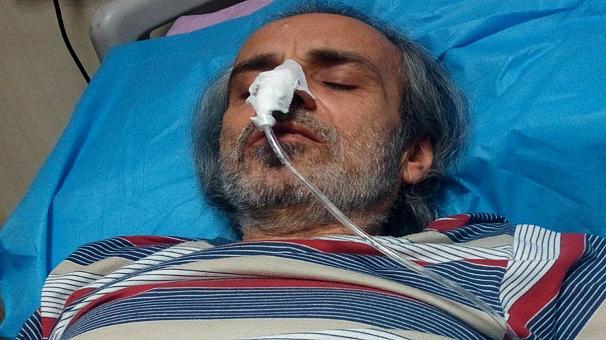Kurdish Political Prisoner Resumes Hunger Strike Despite Risk of Death

Prominent Kurdish human rights activist Mohammad Sediq Kaboudvand has resumed his hunger strike following his hospitalization in Tehran on May 25, 2016, increasing his risk of a heart attack.
Kaboudvand, who is in his ninth year of incarceration at Evin Prison, is protesting the new charges that have been brought against him.
“After nine years in prison, they have opened a new case against my husband,” his wife, Parinaz Baghban Hassani, told the International Campaign for Human Rights in Iran. “The indications are that they want to prolong his imprisonment.”
“Unfortunately Mr. Kaboudvand is continuing his hunger strike because the authorities have not responded to his legal demands… He has not had any food since he was brought to the hospital. The doctors say his heart could give out if he goes on like this,” she said.
Kaboudvand, the former president of the Human Rights Organization of Kurdistan and editor of Payam-e Mardom (“People’s Message”), a Kurdish-Persian publication, was a healthy man until his incarceration, according to this wife.
“Under pressure during nine years in prison he has had two heart attacks and is suffering from various illnesses,” said Baghban Hassani. “Now he is getting worse with this hunger strike.”
Iran’s judicial officials, including the Judiciary’s assistant at Evin Prison, have refused numerous requests to review Kaboudvand’s case, which led to his latest hunger strike on May 8, 2016.
The chief warden of Evin Prison had recommended Kaboudvand for conditional release in February 2016, but the prosecutor refused to consent. According to Article 134 of Iran’s New Islamic Penal Code, only the longest sentence needs to be served in cases involving convictions on multiple charges.
Instead of receiving an early release, however, Kaboudvand was interrogated in Evin Prison in February and March 2016 and charged with “propaganda against the state.” His trial was held on May 24 and was presided by Judge Mohammad Moghisseh of Branch 28 of the Revolutionary Court.
Kaboudvand has rejected all the accusations against him as false and unreasonable, his wife said.
The new charges against Kaboudvand accuse him of sending a message to the people of Kobani—a city in northeastern Syria with a predominantly Kurdish population—congratulating their successful defense against an onslaught by Islamic State fighters, and calling for peace between Kurds and the Turkish government. Kaboudvand has also been accused of writing a university paper about the human rights situation in Iran’s prisons.
“My husband is in prison,” said Baghban Hassani. “How could he be sending messages to Kurds and Turkey?”
“As for his university thesis, first of all, it has not been completed, and secondly, it’s about ‘Turkey and Minorities’ and has nothing to do with Iran,” she added. “They have also accused him of ‘propaganda against the state,’ but he has rejected all these charges.”
Kaboudvand was arrested on July 1, 2007 and sentenced to 11 years in prison—10 years for “acting against national security” by creating and managing the Human Rights Organization of Kurdistan, and one year for “propaganda against the state” for contact with the international media as well as the United Nations’ secretary general. The sentence was reduced to 10 years upon appeal.
In the city of Zanjan, 185 miles northwest of Tehran, Kaboudvand was sentenced to six months in prison in a separate case for “spreading falsehoods” in the Payam-e Mardom publication. He has been trying to combine all his convictions to reduce his overall prison time based on Article 134 of Iran’s New Islamic Penal Code, but the Judiciary has so far refused.






